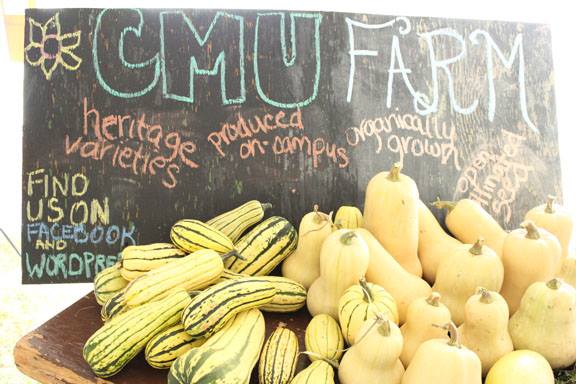“When Cheap Is Costly” is the third of seven Face2Face events hosted by CMU
The April collapse of the Bangladeshi clothing factory, which produced for Loblaw’s Joe Fresh label, and which killed more than 1,100 workers, raises important questions about where our clothes come from, and what conditions they are produced in.
 With the publicity given to garment factories, like the Loblaw contract-location in Bangladesh, how can North Americans show concern in their consumer behaviours for workers overseas?
With the publicity given to garment factories, like the Loblaw contract-location in Bangladesh, how can North Americans show concern in their consumer behaviours for workers overseas?
Are we too concerned with fast fashion? Do constantly changing fashions trends encourage us to buy too many ‘cheap’ clothes that only need to last for a fashion season?
What is the ethical responsibility of business people in how they source the goods they produce, as well as how they market and advertise them
And how does social change happen for complex, diffuse problems like this?
Ray Vander Zaag, Assistant Professor of International Development Studies at Canadian Mennonite University (CMU), will discuss those questions and more during CMU’s next Face2Face event exploring the intersection of faith and life.
Vander Zaag will host a conversation, titled “When Cheap Is Costly: Sweatshops and the Clothes I Buy,” on Wednesday, Oct. 30 at 7:00 PM in CMU’s Great Hall (500 Shaftesbury Blvd.). Admission is free, and everyone is welcome to attend.
Vander Zaag says he is interested in the topic because it links to Haiti, where he worked with his church’s development agency from 1985 to 1993. Garment factories, some with poor working conditions, are common in the Caribbean country, and are still being promoted as a key development strategy for Haiti.
“The topic of sweatshops affects my day-to-day life here in Winnipeg, because I do think about things like how many shirts I need to have in my closet,” Vander Zaag says. “It’s also interesting linking this topic to places I’ve lived in and care about, like Haiti.”
Vander Zaag hopes his talk will lead to a nuanced discussion about the topic, because it is a complex issue with no easy answers.
“At the same time, it’s pretty clear that there are people being hurt,” he says.
A lot can be, and is being done, to work toward solutions.
“There are fair trade clothing shops in Winnipeg, there are advocacy groups working in solidarity with labourers in the global south, and Loblaw is concerned about this,” Vander Zaag says. “There are many pieces to the puzzle of a fairer global garment industry, and all these initiatives can slowly make that ocean liner move in a new direction.”
“When Cheap Is Costly: Sweatshops and the Clothes I Buy” is the third of seven Face2Face events CMU will host during the 2013-14 school year.
Face2Face events are a series of conversations with CMU faculty designed to engage the community on a wide variety of current events and issues at the intersection of faith and life. For the complete Face2Face schedule, please visit www.cmu.ca/face2face.





 With the publicity given to garment factories, like the Loblaw contract-location in Bangladesh, how can North Americans show concern in their consumer behaviours for workers overseas?
With the publicity given to garment factories, like the Loblaw contract-location in Bangladesh, how can North Americans show concern in their consumer behaviours for workers overseas?